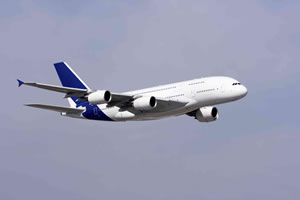This might come as a shock to many pilots but we are not special in the mind of the recruiter. We are a piece of the equation that needs to be in place to make the machine of the airline work. Yes we are a key piece, however, a piece just the same. Doing the job correctly and not making waves is the main concern of the recruiter.
You do not have to be the best; sometimes just good enough is good enough. Most companies now are moving towards a computer based algorithmic way of hiring. The applicant with the most boxes checked by the algorithm gets the call for the interview. Once you have checked a specific box focus your attention to the next box that is “checkable.” Airlines Apps has taken a previously complicated and time-consuming endeavor and simplified the process. Now a pilot looking for a job will fill out a basic application and then any airline that he or she wants to apply for will only have a small addendum to fill out. Airlines are looking for ways to only interview the best applicants; the digital age has made it easier for them to run as many specific filters as they desire and refine their search criteria as appropriate. Thereby making the most effective use of their interviewers time.
Getting hired is a full time job. Often I hear how hard it is to get an interview and that why are they not calling me now. The first question I ask is how much time have you been putting towards getting hired. The most typical response is, “well I filled out the application.” You will need to put time and effort into getting noticed even more so this day and age because it has become very easy to gauge applicants against other applicants. Examples of the time and effort are; going to each and every job fair, visiting forums to get the latest information on what the company is doing, or even jump seating just to talk to pilots at the airline that you are interested in. All of the items listed are just an example of the basic things that you should be doing to get a call to interview. Plato Rhyne, President of Airline Apps, suggests that when filling out the application do not be in a hurry and actually, read and answer, the actual question asked. Too many times applicants make errors in punctuation and grammar. Remember you are applying for a job that is detail oriented; make sure you act the part.
You should always look your best and be ready to subtly talk about how you are looking for a job and try to make a connection other than aviation. You never know whom you will meet at a job fair or on the jumpseat. Going to a job fair may seem like a waste of money: you will wait in line for hours, talk to the representative for maybe five minutes and then be pushed to the side. These job fairs are some of the best investments in your career progression out there right now. They are all tax deductible, and the people that you meet after the job fair and during; could help you out in some way that you never imagined. Networking is a term that is thrown around a lot and not many pilots know the full reach of it. That mainline pilot that commutes out of the same city as you, or the neighbors friend that is a pilot at XYZ airline are both people that you should build a rapport with. That being said, do not be the guy that the first thing out of his mouth is, hey can you get me a job. Immediately that puts a bad perception in the others mind. Give before you get. If it is only down to the jumpseat and you have time to spare pass it along to the mainliner, you will see him again and he will remember. Be subtle with getting on a topic of getting a job. Let them lead the conversation to that topic.
Just like pilots have friends and visit forums about our profession so do recruiters for airlines. There are top tier candidates that get on the radar of many recruiters and will get many job offers. These top tier candidates are only about 5% of the pilot population and worked hard to get that top slot. Each airline has their own “identity” that they try to match each candidate to; use the keywords that identify with that culture.
When a computer is scanning thousands of resumes and cover letters it does not care how you got into the stack it is only looking for the preprogrammed descriptors to narrow down the stack for a human eye to make the final cut.
By Bart Adams
First Officer / Freelance Author
Works Cited.
Rhyne: Plato. 2014, (March18). Telephone Interview.


